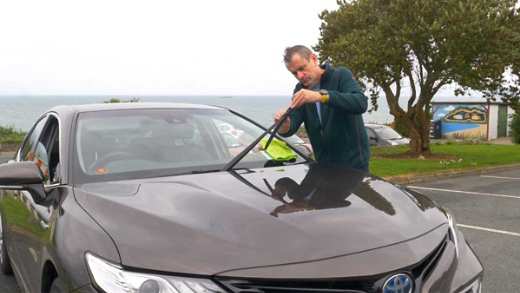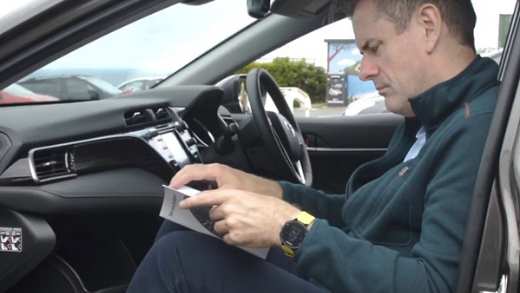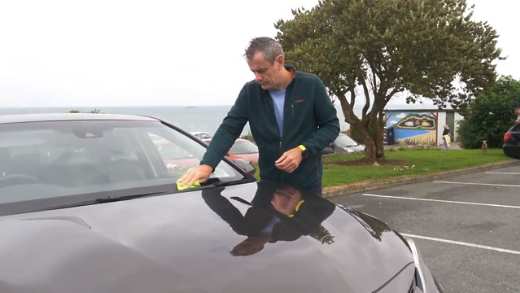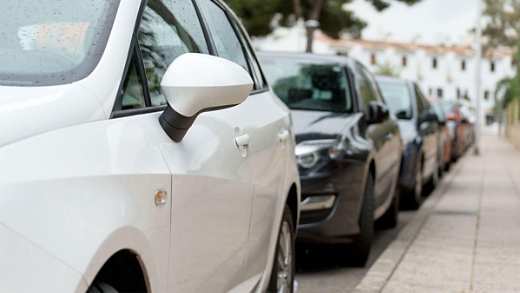Misplacing your car keys can be wildly irritating; many a couch cushion has been flung across the room as a frantic search kicks off. Of course, sometimes it’s a bit more serious and you know they’re lost – and there’s no getting them back. On top of the frustration of not having access to your car, you’ll be left wondering who might have them.
Luckily, help is at hand – we’ve prepared a comprehensive guide; what to do when you lose your car keys, how the type of key impacts your next move, how Aviva can help get you back on the road, and even tips on how to avoid the situation in the first place…

Key information
If you need a lost key replaced, you essentially have two ports of call: an auto locksmith, or your car dealer. The attractions of a locksmith are numerous; they operate a mobile service and will have all the equipment needed to make a new key – quite possibly on the spot – and will often be a cheaper option. Be aware that prices can vary significantly, though, especially since keys, ignitions, and security systems differ from one model to the next.
Your car dealer, on the other hand, will be the best source of information if you have any doubts or questions as to what’s required, and while possibly being more expensive, will be well-placed to address your needs.
Types of key
When it comes to what’s required – and the price you’ll pay – a lot depends on the type of key in question.
- A simple, traditional car key – basically, a small rod of metal – is often the simplest to replace. It’s also cost effective, given that the whole process can cost as little as €50.
- If you have a car key fob (that is, a remote without the ignition key attached) you might think the technological aspect would add to the cost – but that’s not the case. The item itself costs quite little to replace – readily available online from €15 each – and in many cases requires no specialist equipment or skills to reprogram. In fact, your car’s manual may well contain the simple step-by-step instructions on how to get it right.
- A switchblade key essentially combines the features of the above and is therefore a bit more expensive; you’ll likely be looking at something in the region of €75 or more to have your key replaced.
- A transponder key is a useful anti-theft device; it contains a computer chip that pairs with your car to allow it to start. Many modern keys will contain this technology, often paired with the features of a switchblade – meaning it’s a complex piece of hardware. Replacing it is likely to cost more than €100.
- Finally, there’s the smart key – which doesn’t look much like a key at all. It works entirely remotely, so that when it’s within range you’ll simply need to press a button on your car to start the engine. It’s snazzy, it’s futuristic – and suitably pricy, as you’ll likely be looking at €150 at a minimum to replace it.
The extra considerations
While in most cases a replacement key will be all you need, you may need to do more if you have a reason to believe that your key may have fallen into the wrong hands. Replacing the door and boot locks, the ignition lock cylinder, and even reprogramming the car’s digital receivers are all options but will add significantly to the cost.
With Aviva, if your car keys are lost or stolen and you can prove that any person who may have your keys or transmitter is likely to know where you keep your car, we’ll pay the cost of replacing your locks up to €1000.
How to avoid losing your car keys
They say prevention is the best cure – so some simple steps in reducing the chances of your keys being lost or stolen can go a long way to avoiding all this hassle in the first place.
- Give them a home
Just as you likely have a regular spot to put your keys in the house, do the same when out and about; a secure compartment of your bag, or a safe pocket of your clothing. As well as adding safety in the first place, it’s likely you’ll notice their disappearance far more quickly if they’re not in their usual spot. - Bulk up
While there’s a convenience to having a slim, sleek and undersized key, it makes it all the more difficult to keep track of – or find when gone astray. A keyring, complete with a few other keys, a couple of charms, and whatever else takes your fancy, will make them harder to lose and easier to find. - Attach a tracker
The very same GPS technology that helps you find your destination on the road can be used to keep track of your keys, too. An inexpensive addition to your keyring, a Bluetooth tracker could save you a lot of hassle in the long run – and is even handy when searching around the house, too! - Leave them alone
Taking them out of your pocket to jingle during a tedious phone call, popping them on the table as you tuck into lunch, or stuffing them in the seat pocket of a bus; every time you temporarily move your keys, you’re increasing the chance of losing them. Habits can be hard to break but do your best to leave them where they belong. Additionally, resist flicking and fidgeting with your switchblade key; since it operates on a simple hinge, overuse could lead to it snapping at a moment’s notice – causing an entirely avoidable headache! - Have a spare
OK, so this won’t actually prevent you from losing your key – but it bypasses a lot of the problems you face when it happens. As well as access to your car, it also makes replacement cheaper, as it’s easier to replicate an existing key than to start from scratch.
Now that you know the ins and outs of your car’s key, take the final step for some peace of mind with Aviva car insurance, which comes with breakdown rescue, as standard.
We encourage our customers, where possible, to make use of our online options to access any help you need. If you have a query, you can reach us via our contact forms. MyAviva is an online self-service portal available to all our home and car insurance customers.















